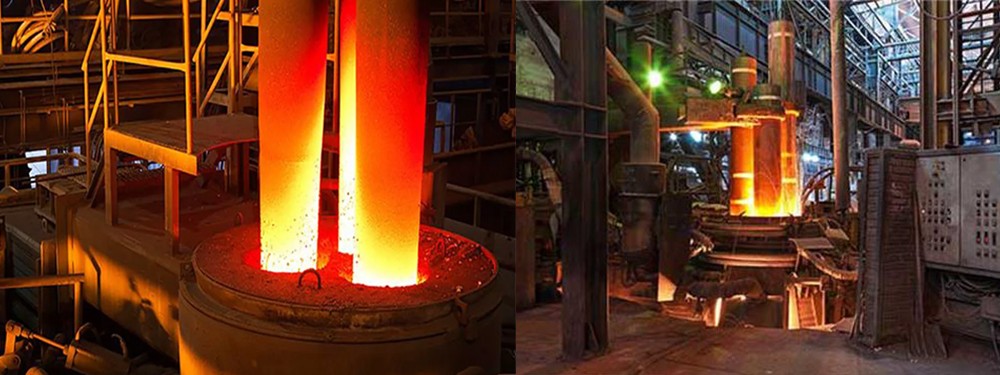Cochin Shipyard was incorporated on March 29, 1972 as a private limited company under the Companies Act, 1956, with the Registrar of Companies, Kerala at Ernakulam. The company became a deemed public limited company under section 43A of Companies Act, 1956 on July 1, 1982. They again became a private limited company with effect from July 16, 1985.
In the last three decades the company has emerged as a forerunner in the Indian Shipbuilding & Ship repair industry. This yard can build and repair the largest vessels in India. The yard has delivered two of India’s largest double hull Aframax tankers each of 95,000 DWT. CSL has secured shipbuilding orders from internationally renowned companies from Europe & Middle East and is nominated to build the country’s first indigenous Air Defense Ship. Shipyard commenced ship repair operations in the year 1982 and has undertaken repairs of all types of ships including upgradation of ships of oil exploration industry as well as periodical lay-up repairs and life extension of ships of Navy, UTL, Coast Guard, Fisheries and Port Trust besides merchant ships of SCI & ONGC. The yard has, over the years, developed adequate capabilities to handle complex and sophisticated repair jobs. The Shipyard also trains graduate engineers to marine engineers who later join ships both Indian and foreign as 5th Engineers.
Business area of the company
The company caters to clients engaged in the defense sector in India and clients engaged in the commercial sector worldwide. In addition to shipbuilding and ship repair, it also offers marine engineering training. Moreover, the company is in the process of constructing a new dock, a ‘stepped’ dry dock (Dry Dock). This stepped dock will enable longer vessels to fill the length of the dock and wider, shorter vessels and rigs to be built or repaired at the wider part. It is also in the process of setting up an International Ship Repair Facility (ISRF), which includes setting up a shoplift and transfer system.
Revenue Break-up
The company is primarily in 2 segments – Ship building and Ship repairing. Below is the break-up of the 2 revenues streams:
| 2018 | 2019 | 2020 | 2021 | 2022 | |
| Revenue % Ship Building | 74% | 72% | 83% | 85% | 79% |
| Revene % Ship Repair | 26% | 28% | 17% | 15% | 21% |
Ship building has longer lead times and smaller EBIT margins. The company is guiding for increase in revenues from Ship repair over a period which has higher EBIT margins (21%-23%) to arrive at the blended margins of 18%-19%.
Around 20% of the revenue is generated from commercial applications and 80% is generated from defense order.
Shipbuilding for clients engaged in the defense sector is complex and time-consuming, whereas commercial shipbuilding, while relatively less complex, is subject to business cycles. Catering to both commercial clients and clients engaged in the defense sector has helped to address these issues relatively better. Company’s top customers include the Indian Navy and the Indian Coast Guard which together comprises ~70-75% of revenues for the company.
Shareholding
Government owns 73% of the company. FIIs own 6.28% and DIIs own 3.78%; FIIs increased stake from 1.84% to 6.28% from June 2020 to Mar 2023. DIIs reduced stake from 10.43% o 3.78% from June 2020 to March, 2023.
Key update on business
Near term impact on margins due to fixed price contracts however its contribution has declined to ~20% of shipbuilding revenues: As per company’s IPO prospectus, most of Company’s shipbuilding contracts are fixed-price contracts and all costs including labour and raw materials costs (steel is the key RM) are forecasted when it enters into such fixed-price contracts. As per the contract, in case of cost variances from such estimates, the company is permitted to retain all cost savings on completed contracts but are liable for the full amount of all cost overruns. In current scenario, where steel prices and other key raw material prices have increased sharply couple with supply chain issues, EBITDA margins of the company is expected to remain under pressure in the near term.
Delay in new projects execution will result in delay in incremental growth: To expand its capacity, the company is in the process of constructing a new dock, a stepped dry dock (total capex of Rs1799crs and 78% complete) which will enable longer vessels to fill the length of the dock and wider, shorter vessels and rigs to be built or repaired at the wider part. In addition, the Company also in the process of setting up an International Ship Repair Facility (ISRF, capex of Rs970crs and 53.5% complete), which includes setting up a shiplift and transfer system. However, both the project completion has been delayed and is now expected to get commission in Jul’23.
Order book at 11200 crores as of FY22: Order book stood at Rs11200 crores which is around 4x of current revenue.
Cochin Shipyard to develop India’s first indigenous Hydrogen Fuel Cell Vessel: The Ministry of Ports, Shipping and Waterways has decided to develop and build the first indigenous Hydrogen Fuelled Electric Vessels at Cochin Shipyard Limited and kick start the efforts of the country towards green shipping.
Cochin Shipyard to invest in Maritime Start-ups: Cochin Shipyard has committed to invest an initial corpus of Rs50crs in Start-up companies engaged in the maritime sector which could help the company in being up to date with changes in the technology in the sector.
Cash comprises ~35% of current mkt cap


